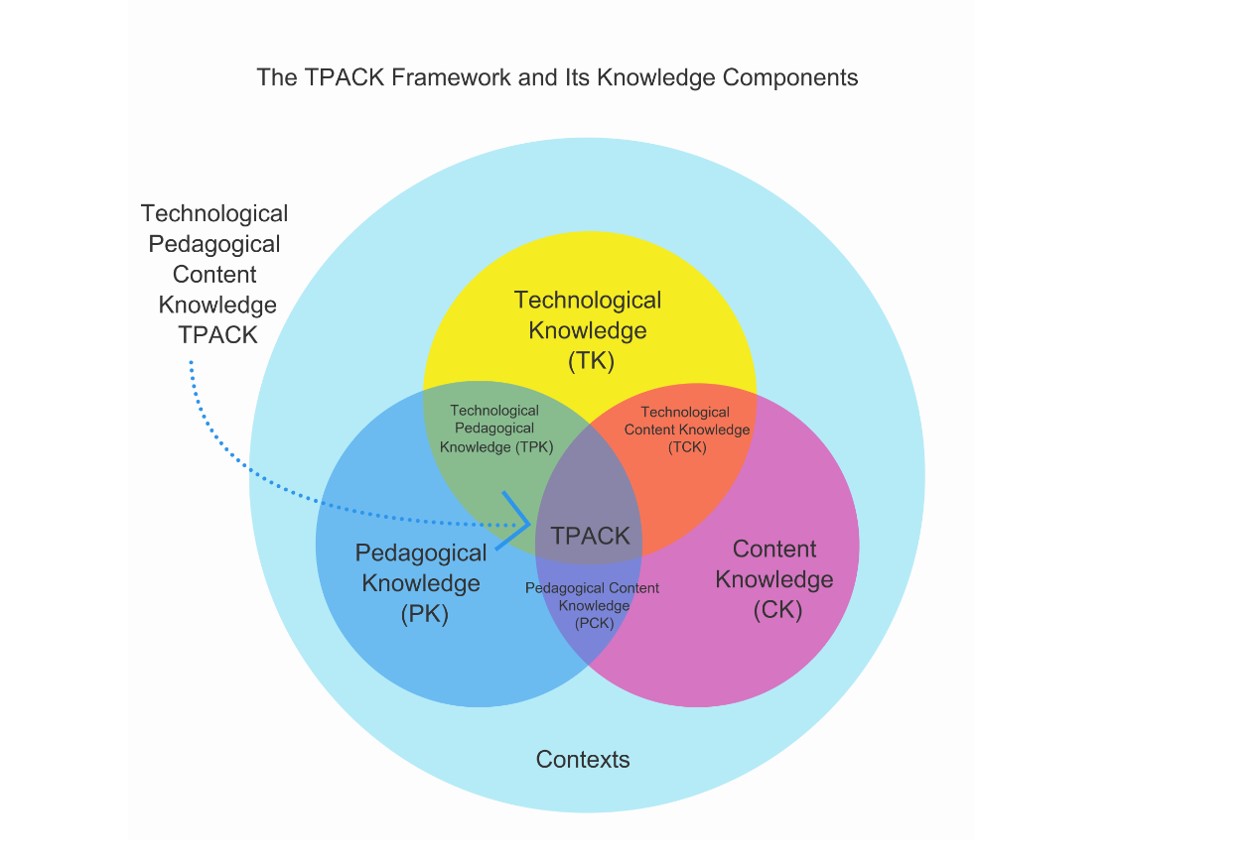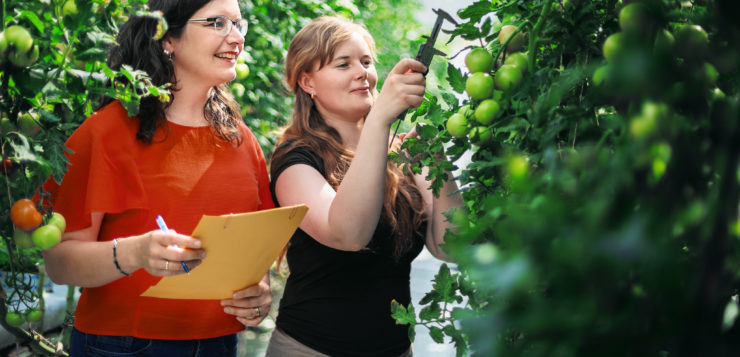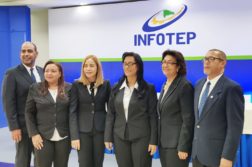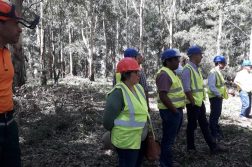The bioeconomy is being disrupted due to global trends of digitalization and automation. Knowledge-intensive businesses and sustainable solutions in carbon-smart food production have resulted in various consequences for the professionals working in and for bioeconomy. This blog post refers to an article which is originally published in Technology Innovation Management Review. The article examines bioeconomy teachers’ perceptions of digitalization.
“The article draws on research data from semi-structured focus-group interviews that were conducted with bioeconomy teachers in applied sciences higher education. The theoretical frame for the analysis was Mishra and Koehler’s (2006) teacher knowledge framework for technology integration called Technological Pedagogical Content Knowledge (TPACK).
The results suggest that although applied sciences university teachers have strong Technological Pedagogical Knowledge (TPK), they need more systematic approach and support to develop Technological Content Knowledge (TCK) in a disruptive field. Teaching in a rapidly transforming discipline, like bioeconomy, requires continuous co-development of all TPACK knowledge components by teachers” (Ryymin, 2021).

“The profession of an applied sciences university teacher in the field of bioeconomy is in a flux due to rapid current digital disruption of the industry. Following the framework of Technological Pedagogical Content Knowledge (TPACK) (Mishra & Koehler, 2006; Koehler et al., 2013), the teachers in this study considered themselves quite competent in their Technological Pedagogical Knowledge (TPK), Pedagogical Knowledge (PK), and Content Knowledge (CK) related to current (university) curricula. However, they expressed concerns about updating in the near future their Content Knowledge (CK), and especially their Technological Content Knowledge (TCK). Despite having many proactive initiatives to update their knowledge, they longed for a more strategic approach to develop their disciplinary knowledge, intertwined with technological innovations. Research, development, and innovation activities, along with stronger partnerships and collaboration with the bioeconomy industry and businesses were mentioned as important activities for teachers in embracing digital disruption. Also, the micro, meso and macro level contexts were deemed as meaningful for applied sciences teachers’ development. Positive changes in these contexts may accelerate positive development in teachers’ knowledge components. Hence, the strategies of HE institutions play an important role in teachers’ knowledge development and adaptation to global changes.
The TPACK-framework states that the core components of teachers’ knowledge are in continuous interaction and co-development. Challenges and changes in one core component, sooner or later, effect the other components. Therefore, when supporting teachers to reconcile changes in a disruptive industry, one must pay attention to the co-developing all of the knowledge components. Especially, teachers should have strategies and approaches to develop systematically their CK and TCK as related to their rapidly transforming discipline.
An applied sciences university teacher can become an agent of change by systematized development, as suggested by Pozos and Torelló (2012). They can commit to generate and share new knowledge in a critical and responsible way. In future research, it will be important to find out what kinds of possibilities and challenges bioeconomy teachers face in their continuous learning and content knowledge development at work. Likewise, questions arise about how to support teachers’ development efficiently and optimally during transformations in the digital age.”
Source:
2021. Perspectives from Higher Education: Applied Sciences University Teachers on the Digitalization of the Bioeconomy. Technology Innovation Management Review, 11(2): 24-32. http://doi.org/10.22215/timreview/1420
Essi Ryymin
Principal Research Scientist, HAMK Edu
Häme University of Applied Sciences





Discussion88 Comments
Heya i am for the first time here. I came across this board and
I in finding It truly useful & it helped me out much.
I’m hoping to give something again and aid others like you helped me.
What i do not realize is if truth be told how you are
not really a lot more neatly-preferred than you might be now.
You are so intelligent. You recognize thus significantly in the case of this topic, made me for my part imagine it from so many numerous angles.
Its like men and women are not interested until it’s one thing to accomplish with Lady gaga!
Your personal stuffs outstanding. At all times maintain it up!
My brother recommended I might like this web site.
He used to be totally right. This publish truly made
my day. You can not believe simply how a lot time I had spent
for this information! Thank you!
Appreciating the commitment you put into your site and in depth
information you offer. It’s awesome to come across a
blog every once in a while that isn’t the same unwanted rehashed material.
Wonderful read! I’ve bookmarked your site and I’m including your
RSS feeds to my Google account.
Wow that was odd. I just wrote an very long comment but after I
clicked submit my comment didn’t appear. Grrrr… well I’m not writing all
that over again. Regardless, just wanted to say superb blog!
Fantastic items from you, man. I’ve consider
your stuff prior to and you are just extremely wonderful.
I really like what you have received here, really like what you
are stating and the best way by which you are saying it.
You make it entertaining and you continue to care for to stay it smart.
I can’t wait to read far more from you. That is actually a wonderful web site.
Very nice post. I just stumbled upon your weblog and wished to say that I have truly enjoyed browsing your blog posts.
In any case I’ll be subscribing to your feed and I hope you write
again very soon!
We stumbled over here coming from a different page and thought I might
as well check things out. I like what I see so now i’m following
you. Look forward to looking over your web page yet again.
В современном мире время — драгоценный ресурс, и часто
не удается найти его для выполнения всех необходимых процедур.
Одна из таких задач — получение медицинских справок для работы.
Сегодня этот процесс можно упростить — можно просто купить справку онлайн.
Заказ справок через интернет
становится популярной услугой благодаря
своей простоте и скорости. Множество сервисов
предлагают оформить различные справки без необходимости посещать поликлинику.
Это особенно удобно для тех, кому
срочно нужен документ, например, для работы.
Доступен различные виды медицинских справок, которые можно купить: справка о анализах, справка для спорта, для детского сада.
Заказ справки онлайн — это шанс избавиться от лишних забот в кратчайшие сроки.
Процесс заказа справки максимально прост.
Вы выбирает нужный документ на сайте или по телефону, и компания оперативно подготавливает все нужные справки.
Документы оформляются в соответствии с законодательством России,
что подтверждает их законность.
Однако, следует помнить, что приобретение справок должно осуществляться через проверенные компании, чтобы избежать проблем с
законом и гарантировать подлинность документа.
Таким образом, получение справки
онлайн для тех, кто экономит свое время и ищет быстрый и легальный способ получить
справку.
It is really a great and helpful piece of information. I’m happy that you just shared this helpful info
with us. Please keep us informed like this.
Thanks for sharing.
you’re truly a good webmaster. The website loading velocity is incredible.
It kind of feels that you are doing any distinctive trick.
Also, The contents are masterpiece. you’ve done a magnificent activity in this topic!
I all the time emailed this web site post page to all my friends,
since if like to read it next my links will too.
This design is spectacular! You most certainly know how to keep a reader amused.
Between your wit and your videos, I was almost moved to start my
own blog (well, almost…HaHa!) Fantastic job. I really
enjoyed what you had to say, and more than that, how you presented it.
Too cool!
Hello i am kavin, its my first occasion to commenting anyplace, when i read this piece of writing
i thought i could also create comment due to
this sensible post.
Ahaa, its pleasant discussion about this article at this place at this blog, I have read all
that, so at this time me also commenting at this place.
I always used to study post in news papers but now as
I am a user of net therefore from now I am using net for articles
or reviews, thanks to web.
Great information. Lucky me I discovered your
blog by accident (stumbleupon). I’ve book-marked it for later!
Hi, I do believe this is an excellent web site. I stumbledupon it
😉 I will come back once again since I saved as a favorite it.
Money and freedom is the best way to change, may you be rich and continue to
guide other people.
We stumbled over here by a different web page and thought I might as well check things out.
I like what I see so now i’m following you. Look forward to looking over your
web page yet again.
Hi there, constantly i used to check weblog posts here early in the morning, for the reason that i love to find out more
and more.
Link exchange is nothing else except it is
just placing the other person’s blog link on your page at suitable place and other person will also do
similar in support of you.
I savour, result in I discovered exactly what I was looking for.
You’ve ended my 4 day long hunt! God Bless you man. Have a nice day.
Bye
After exploring a few of the blog posts on your blog, I
really like your technique of blogging. I book-marked it to my
bookmark webpage list and will be checking back soon. Please visit my website as
well and tell me how you feel.
Awesome article.
A fascinating discussion is worth comment. There’s no doubt that that
you ought to publish more about this issue, it may not
be a taboo matter but usually people don’t talk about such topics.
To the next! Best wishes!!
Hey I know this is off topic but I was wondering if you knew of any
widgets I could add to my blog that automatically tweet my newest twitter updates.
I’ve been looking for a plug-in like this for quite some
time and was hoping maybe you would have some experience with something
like this. Please let me know if you run into anything.
I truly enjoy reading your blog and I look forward to your new updates.
Hey I know this is off topic but I was wondering if you knew of any
widgets I could add to my blog that automatically tweet my newest twitter updates.
I’ve been looking for a plug-in like this for quite some time and was hoping maybe you would have some experience with
something like this. Please let me know if you run into anything.
I truly enjoy reading your blog and I look forward to your new
updates.
I was able to find good information from your articles.
I was suggested this blog via my cousin. I am no longer certain whether or not this put up is written by way of him as
nobody else recognise such designated about my trouble.
You are wonderful! Thanks!
Hello There. I found your blog using msn. This is a really well written article.
I will make sure to bookmark it and come back to read more of your useful info.
Thanks for the post. I will certainly return.
I savor, lead to I found exactly what I used to be looking for.
You have ended my four day long hunt! God Bless
you man. Have a nice day. Bye
I couldn’t resist commenting. Exceptionally well written!
Post writing is also a excitement, if you be acquainted with afterward you
can write if not it is complicated to write.
Howdy I am so thrilled I found your site, I really found you by error, while I was looking on Yahoo for something else, Nonetheless I am here now and would just
like to say kudos for a marvelous post and a all round entertaining
blog (I also love the theme/design), I don’t have time to
browse it all at the moment but I have saved it and also added in your RSS feeds,
so when I have time I will be back to read a lot more, Please
do keep up the fantastic job.
If you wish for to take a good deal from this paragraph then you have to apply such methods to your
won weblog.
I am sure this paragraph has touched all the internet users, its really
really nice article on building up new weblog.
You actually make it appear so easy together with your presentation however I find this matter to be actually one thing which
I feel I would by no means understand. It sort of feels too
complicated and extremely wide for me. I’m having a look
ahead on your next submit, I will attempt to get the dangle of
it!
WOW just what I was looking for. Came here by searching for tickmill forex
Hello there! I simply wish to offer you a big thumbs up for the great info you have got here on this post.
I’ll be coming back to your site for more soon.
This paragraph gives clear idea in favor of the new visitors of
blogging, that really how to do running a blog.
Hi friends, good post and nice urging commented here, I am genuinely enjoying by these.
Heya this is kind of of off topic but I was wanting to
know if blogs use WYSIWYG editors or if you have to manually code
with HTML. I’m starting a blog soon but have
no coding experience so I wanted to get guidance
from someone with experience. Any help would be greatly appreciated!
An outstanding share! I have just forwarded this onto a coworker who had been conducting a
little research on this. And he in fact bought me breakfast because I discovered it for him…
lol. So allow me to reword this…. Thanks for the meal!!
But yeah, thanx for spending the time to discuss this topic here on your site.
It’s actually very complicated in this busy life to
listen news on TV, therefore I only use world wide web
for that reason, and take the latest news.
Hurrah! At last I got a website from where I be capable of in fact get valuable data concerning
my study and knowledge.
I do not even understand how I stopped up here, but I thought this put up
used to be great. I do not understand who
you might be however definitely you’re going to a famous blogger if you happen to
aren’t already. Cheers!
Wow, this article is good, my sister is analyzing these kinds of things, so I am going to let
know her.
I visited several blogs however the audio quality for audio
songs current at this site is in fact superb.
This design is wicked! You definitely know how to keep a reader amused.
Between your wit and your videos, I was almost moved to start my own blog (well,
almost…HaHa!) Excellent job. I really loved what you
had to say, and more than that, how you presented
it. Too cool!
Do you have a spam problem on this site; I also am a blogger, and I was wanting
to know your situation; many of us have developed some nice practices and we are looking to exchange methods with others, please
shoot me an e-mail if interested.
You actually make it appear really easy along with your presentation however I find this
topic to be actually something that I believe I might by no means understand.
It seems too complicated and extremely extensive for me.
I am having a look ahead on your subsequent publish, I will try to get the cling of it!
Hello, its pleasant post regarding media print, we all understand media is a great source
of facts.
Yes! Finally someone writes about fbs.
Hello, I enjoy reading through your post. I wanted to write a little comment to support you.
I think the admin of this web site is genuinely working hard for his site, because here every data is quality based data.
Hi friends, how is everything, and what you desire
to say regarding this piece of writing, in my
view its actually amazing for me.
This excellent website really has all the info I needed
concerning this subject and didn’t know who to ask.
Hi there! This article couldn’t be written any better! Reading through this article reminds
me of my previous roommate! He constantly kept preaching about this.
I’ll send this article to him. Pretty sure he will have a good read.
Thanks for sharing!
I was extremely pleased to find this website. I wanted to thank you for ones time
for this fantastic read!! I definitely savored every little bit
of it and I have you book marked to check out new information in your blog.
I enjoy what you guys are usually up too. This sort of clever work and
exposure! Keep up the awesome works guys
I’ve included you guys to blogroll.
I am actually glad to glance at this webpage posts which consists of lots of helpful
information, thanks for providing these kinds of data.
I believe that is one of the such a lot significant info for
me. And i am happy studying your article. But wanna remark on few common things, The web
site style is ideal, the articles is in point of fact nice : D.
Good process, cheers
Magnificent items from you, man. I have be aware your
stuff previous to and you are simply too fantastic.
I really like what you have acquired here, certainly like what
you’re stating and the way in which through which you say it.
You are making it entertaining and you still take care of to stay it sensible.
I cant wait to learn far more from you. That is really a wonderful website.
This is my first time visit at here and i am genuinely impressed to read all at single place.
Its like you read my mind! You seem to know so much
about this, like you wrote the book in it or something.
I think that you can do with a few pics to drive the message home a bit, but other than that, this is wonderful blog.
A great read. I’ll definitely be back.
You’re so interesting! I do not think I’ve truly read through something like that before.
So great to find another person with original thoughts on this
subject. Seriously.. thank you for starting this up. This website is one thing that is needed on the web, someone with a bit of originality!
If you want to get a great deal from this paragraph
then you have to apply these methods to your won blog.
Thanks for your personal marvelous posting!
I truly enjoyed reading it, you’re a great author.I will make certain to bookmark your blog and
will often come back later on. I want to encourage continue your great job, have a
nice weekend!
Hi there, I enjoy reading all of your post. I like to write a little comment to support you.
Your style is very unique compared to other people I’ve
read stuff from. Many thanks for posting when you have the opportunity,
Guess I will just book mark this web site.
Incredible points. Outstanding arguments. Keep up the good spirit.
I got this site from my pal who shared with me about this site and now this time I am visiting this web page and reading very informative articles
or reviews here.
Very quickly this website will be famous among all blog
users, due to it’s pleasant posts
Fine way of describing, and pleasant paragraph to get information regarding my presentation subject matter, which i am
going to deliver in college.
My relatives always say that I am killing my time here
at net, however I know I am getting experience daily by reading thes good articles or reviews.
whoah this weblog is fantastic i really like studying your
articles. Keep up the good work! You know, a lot of persons are looking around for this
information, you can help them greatly.
Hi to all, as I am really keen of reading this web site’s post to be updated regularly.
It contains nice information.
Wonderful website. A lot of helpful information here. I am sending it to some
buddies ans also sharing in delicious. And obviously, thanks
on your sweat!
Hey, I think your website might be having browser compatibility issues.
When I look at your website in Chrome, it looks fine but when opening in Internet Explorer, it has some overlapping.
I just wanted to give you a quick heads up! Other then that, excellent blog!
It is perfect time to make some plans for the future and it’s time to
be happy. I have read this post and if I could I wish to suggest you few interesting
things or suggestions. Maybe you can write next articles referring to this article.
I wish to read more things about it!
Quality content is the main to attract the users to visit the site,
that’s what this web page is providing.
Hello, i think that i saw you visited my website so i came to “return the favor”.I’m trying to find things to enhance
my website!I suppose its ok to use a few of your ideas!!
We are a group of volunteers and opening a new scheme in our community.
Your site offered us with valuable information to work on. You have
done a formidable job and our whole community will be thankful to
you.
Hello, for all time i used to check blog posts here early in the dawn,
for the reason that i enjoy to find out more and more.
I think the admin of this site is truly
working hard for his web page, since here every material is quality based stuff.
Hey There. I discovered your blog the use of msn. That is a really neatly written article.
I will be sure to bookmark it and return to learn extra of
your useful info. Thank you for the post. I will definitely return.
I’m not sure where you are getting your information, but good topic.
I needs to spend some time learning more or understanding more.
Thanks for magnificent information I was looking for this information for my mission.
Hi to every body, it’s my first visit of this webpage; this web site consists of amazing and in fact good stuff designed for
visitors.